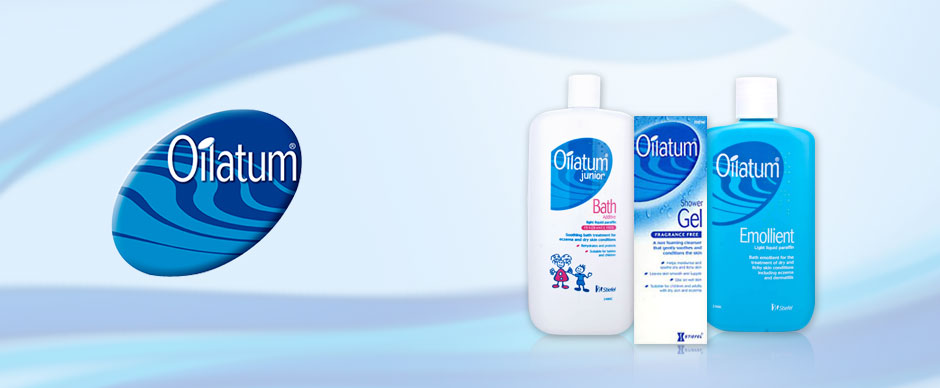
Oilatum FAQs
What causes Eczema?
Eczema is a skin condition that is said to affect one in every five children in the UK. Healthy skin contains natural oils and fats that maintain a healthy moisture balance and provide a protective layer. For individuals with eczema their skin cells don’t produce as many oils and fats and causes the skin to retain less water/moisture. This causes the protective layer of the skin to be weaker and more sensitive to irritants and allergens.
How can I recognise if my child has eczema?
An individual with eczema may experience itchy, red and cracked skin. In more severe cases of eczema, there may be crusting and bleeding. Eczema usually occurs on places like the knees, inside the elbows, sides of the neck and around the eyes and ears where the skin folds.
How should I treat it?
One of the most common methods of treating eczema is the use of emollients. Emollients are essential because they soothe and soften the skin. You can use products like intensive treatments, scalp treatment shampoo, emollients, and repair cream from the Oilatum range to help soothe the symptoms of eczema. You should also speak to your pharmacist or doctor for additional advice.
How much emollient do I need to use on my child?
Children with eczema should bathe with an emollient wash product in the water at least once a day. Emollient creams should also be used frequently—the weekly recommended amount for children is 250 g per week. It is recommended to apply an emollient cream at least 3 or 4 times each day.
Is eczema only a problem during the summer?
Children’s skin can become easily irritated with changes in the weather, including those that come about during winter months. To help protect your child’s skin during the winter you should:
- Make sure their skin is properly moisturised with an oil-based moisturiser.
- Dress your child warmly to protect him or her from the cold and dry environmental changes that winter brings.
- Continue to use gentle bath water and bath additives from the Oilatum range.
- Always use an emollient cream after bathing and 20 minutes before bed time.
- Avoid overheating the skin once indoors. Any extreme temperatures can aggravate the skin.
- After bathing, pat the skin dry instead of rubbing vigorously with a towel.

